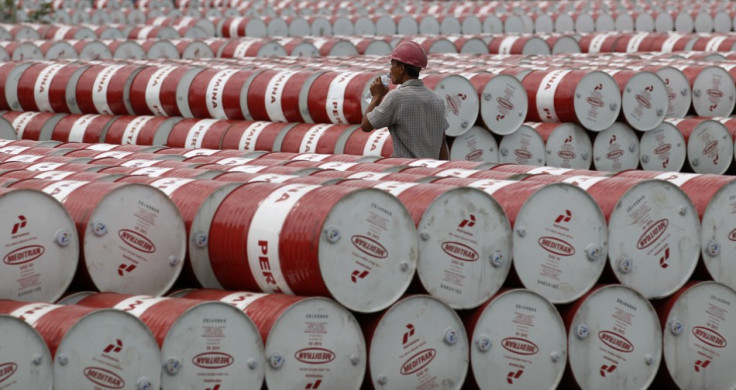Market turmoil: Oil tumbles to lowest level in a decade amid China meltdown

Oil prices fell below the $33 (£22) threshold for the first time in almost a decade on Thursday 7 January, as concerns over a slowdown in China added to worries related to a global oversupply of crude oil and refined products.
Halfway through the European trading session, Brent crude was down 3.88% to $32.95 (£21.90) a barrel, while West Texas Intermediate for February delivery plunged 4.11% to $32.63 (£22) a barrel.
Earlier in the session, Brent had hit its lowest level since 2004, while US crude prices had dropped over 5%, tumbling to a level not seen since 2003.
"The options market in oil is busy as traders appear to be preparing for ever-lower prices from here," said Brenda Kelly, head analyst at London Capital Group. "The cut in global growth forecasts by the World Bank is certainly not a positive for oil demand and the supply glut shows no signs of bullishness for the price, either."
Trading on the Shanghai Composite Index and on the Shenzen Index — China's main benchmarks – was suspended for the day after the CSI 300 index of the 300 biggest Chinese companies plunged over 7% in early trading.
It was the second time this week that trading in markets in mainland China was suspended due to a sharp decline in share prices and analysts suggested there was no end in sight for the crisis gripping the world's second-largest economy.
"Despite gradually gaining access to the IMF's SDR basket, it is clear that Chinese markets are in no state to be called developed, with inexperienced regulatory bodies overseeing unsophisticated investors who seem to be in panic mode," said IG's market analyst Joshua Mahony.
"The problem is no one knows where this rout will stop and as of yet, the Chinese regulators have yet to show they can instil confidence in any way other than to install draconian measures that limit the function of free markets."
The slowdown in China has exacerbated a widespread weakening demand across Asia which, coupled with oversupply concerns and increasing geopolitical tensions in the Middle East, has seen crude prices tumble over 70% in the last 18 months.
© Copyright IBTimes 2025. All rights reserved.






















